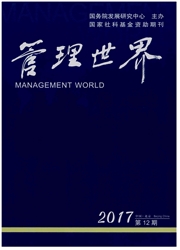

 中文摘要:
中文摘要:
现行"省制"一级行政区划打破了区域文化分布,造成很多地区被分割出自己所属的区域文化而划分到其他省之中。这些被分割地区与本省主流文化之间存在文化冲突,与持相同文化的邻省之间又被设置了地方保护壁垒,无论与哪一方进行经济合作和贸易往来交易成本都会更高,从而经济发展受到限制。本文以大类方言区作为区域文化的代理变量,研究发现这种文化分割所造成的省内文化差异确实会显著降低被分割地区的当代经济发展水平,并且这种负面影响随邻省地方保护主义水平的提高而加重,随被分割地区划入当前省份的历史的延长而减轻,行政区划对区域文化的打乱与地方保护主义相结合造成了严重的经济损失。
 英文摘要:
英文摘要:
Current province-level administrative division in China breaks the distribution of local culture,and many cities are separated from their local culture region to locate in other provinces.These cities encounter potential cultural conflicts with the mainstream culture of the provinces they belong to,and also face various local protectionism barriers with neighboring cities in the province that share the same border and local culture with them.As a result,transaction costs could be higher for them whichever side they trade with,leading to potential harm to their economic development.Using dialect as a proxy for local culture,we find that intra-provincial cultural differences caused by this kind of cultural segmentation can significantly lower economic growth of the separated cities.This negative effect is aggravated by greater local protectionism in neighbor provinces but alleviated by a longer history of the current administrative division.These findings support the hypothesis that cultural segmentation caused by administrative division and local protectionism work together to bring about substantial economic loss.
 同期刊论文项目
同期刊论文项目
 同项目期刊论文
同项目期刊论文
 期刊信息
期刊信息
